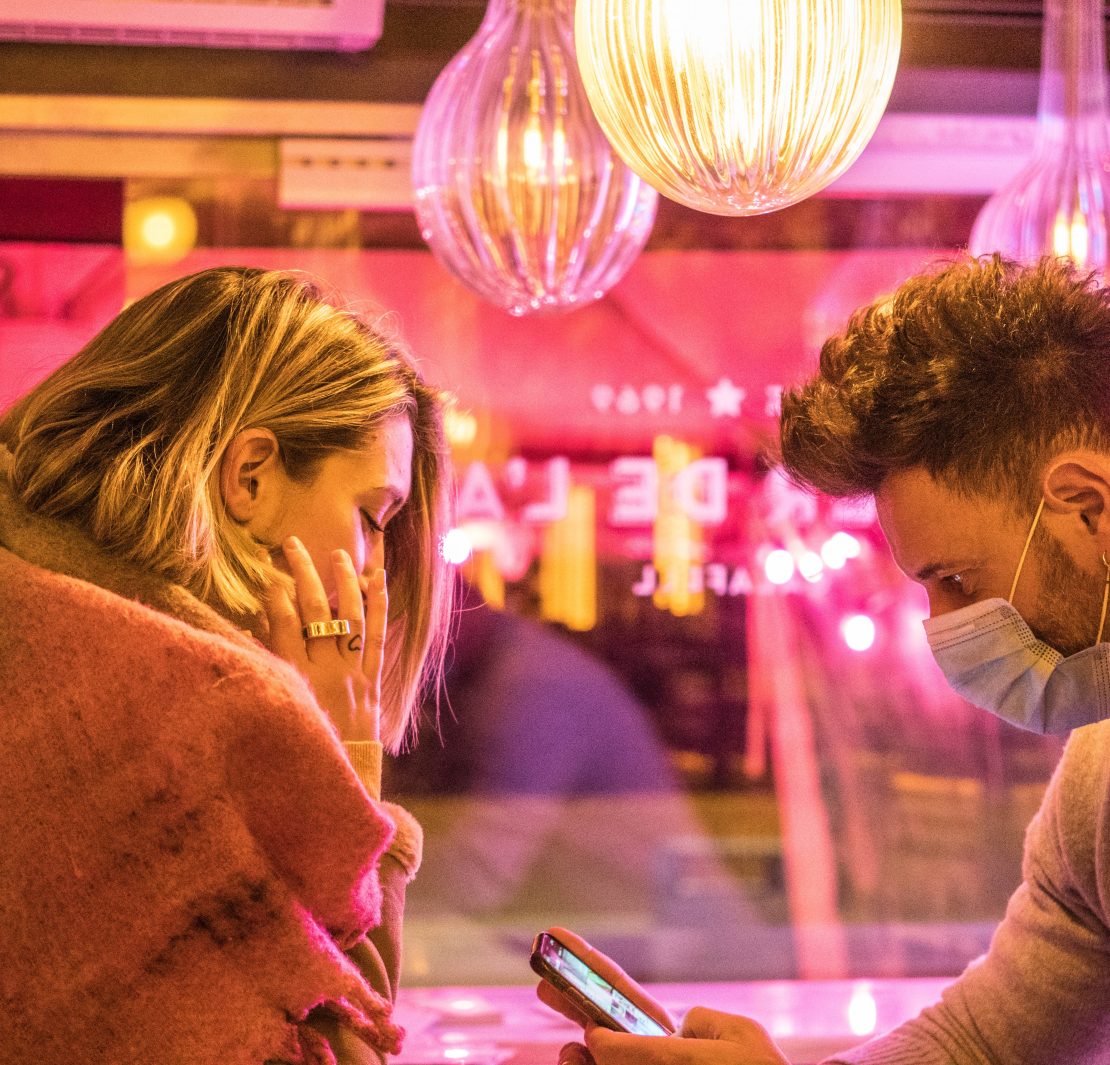The era of dating apps is dwindling.
After two years of lockdown, it’s not hard to imagine why the younger generation craves in-person connections over online interactions. Dating is clearly evolving, and apps like Tinder and Hinge seem almost as primitive to Gen Z, as matrimonial sites and arranged marriages did to younger millennials.
We’re heading towards dating app fatigue and there are social experiments cropping up to help us through it. Like the Pear ring, for example – a small, turquoise band designed to show strangers that you’re single. The concept is pretty simple. “If 1.2 billion singles around the world wore a little green ring on their finger to show they’re single, we wouldn’t need dating apps. IRL connection is the mission,” reads a statement on the Pear website.
Social experiments like this set out to solve a very real problem of today’s generation – the fear of offline connections. With Bumble, Hinge and Tinder dominating the dating scene for the past decade, even before the pandemic hit us we were already heading towards a strictly digital world. Being trapped in our houses for 2 years actually might have been an awakening that we can’t go without face-to-face interactions past a certain point.
Of course, most Gen Z still does use dating apps, but their approach to dating has evolved – unlike many of the dating apps themselves. Tinder’s own ‘Future of Dating’ report found that Gen Zs (18-25 year-olds), who make up the app’s largest user base, have become more self-aware and comfortable with presenting their authentic self socially. Boundaries have become more transparent, as have vulnerabilities. There is nothing to shy away from as bios mentioning ‘anxiety’ have grown by 31 per cent, ‘boundaries’ by 19 per cent and ‘consent’ by 11 per cent.
But the way I see it, dating apps by design lead to superficial connections. Tinder, the US dating app is now synonymous with ‘hook-up’ culture. They have tried to break away from this image recently, with advertisements emphasizing the aspect of ‘real connections’ – but regardless of the millions they spend on vividly colourful advertisements, if you actually use the app, you’ll find that it barely offers said ‘connections’.
Rhea, 22, agrees that dating apps are getting boring. She adds, “I find that people are just so superficial on these apps, it’s because they are trying to sell themselves. It’s the same for everyone. Like we put up a front on Instagram — Tinder isn’t any different. So once you get the hang of it, you realise most people here are the exact same — faked candids, cringe Google-searched bios and not a single unexaggerated fact about yourself. Then you lose interest.”
They might work for some, but overall, dating apps tend to get over-saturated after a point, and younger generations simply don’t have the patience. That’s also probably why most Gen Z now prefers finding romance in friend groups rather than with strangers on the internet. According to Business Insider, in a survey by Survey Center on American Life, 43% of people between the ages of 18 and 29 said they were in a relationship with someone who was first a friend, including an astonishing 50% of women in that cohort. This was a bigger number compared to dating patterns in older generations, where most relationships seem to have formed out of thin air.
Through arranged marriages which then sort of evolved into blind dates followed by dating apps – the older generations were okay with dating people they knew nothing about. Most of them went all in immediately after the first meeting and figured things out along the way. Today, most people prefer to explore before fully committing.
I think the biggest difference is that when you use an app specifically for dating – there are expectations from the beginning. When you meet someone as a friend first, romantic expectations are out of the window right away, giving you more time to truly connect with the person without really expecting anything in return.
Another possible reason why dating patterns are evolving could be that the purpose of dating itself has changed. One of the main purposes older people used to date was to evaluate one another’s suitability as long-term partners. From the 2,000 Indian singles that Tinder surveyed in the earlier mentioned report, however, 62 per cent said they aren’t looking for a committed relationship and prefer friendship with romantic potential or casual dating.
Arnav, 20, is part of the casual dating crowd. “I think globally, yes, dating apps are a thing of the past, but conservative societies like India are still catching up. We’re just now getting comfortable with the idea of casual dating, so we’re in the early stages where getting matches on Tinder is all the rage. Besides, Indian youth is still extremely diverse depending on the location, so I doubt statistics like this are reliable.” he says, on the popularity of dating apps.
Nowadays, most people don’t want to date with their future marriage and children on their minds, what they crave more is companionship in the present. People these days aren’t dating to marry, they’re dating to just date.





Warning: Use of undefined constant ‘url’ - assumed '‘url’' (this will throw an Error in a future version of PHP) in /var/www/html/wp-content/themes/theissue/functions.php on line 143